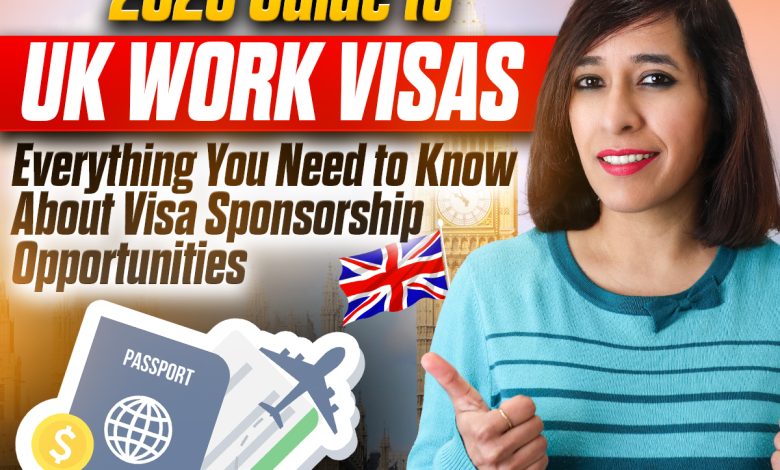Visa Sponsorship Requirements: What You Need to Know in 2025

Are you an international job seeker or student aiming to work or study abroad? Understanding visa sponsorship requirements is crucial for your success. Many global companies and universities provide visa sponsorships, but the process can be confusing if you don’t know what’s expected.
In this blog post, we break down visa sponsorship requirements step by step to help you navigate the application process smoothly and increase your chances of success.
What Is Visa Sponsorship?
Visa sponsorship is when an employer, institution, or family member agrees to support a foreign national’s visa application, helping them live, work, or study in another country. This often involves submitting formal documents to immigration authorities proving that the applicant meets legal and financial requirements.
For example, a U.S. company may sponsor an H-1B visa for a skilled worker, or a UK healthcare employer may sponsor a skilled worker visa for a nurse.
General Visa Sponsorship Requirements
While requirements vary by country, here are the common visa sponsorship requirements you should be aware of:
✅ Valid Job Offer or Acceptance Letter
Most work and study visas require proof of employment or enrollment. You must have a written offer from a qualified sponsor or institution.
✅ Sponsor Eligibility
Not every company or school can sponsor visas. Sponsors must usually meet government requirements, such as being licensed, financially stable, and authorized to hire or enroll foreign nationals.
✅ Proof of Qualifications
You must demonstrate that you meet the job or program requirements, including educational qualifications, work experience, or language proficiency.
✅ Financial Support Evidence
Some visa types require showing you (or your sponsor) can financially support you during your stay to avoid becoming a public burden.
✅ Legal Documents & Compliance
You’ll need a valid passport, clean criminal record (in some cases), and comply with country-specific regulations, like health checks or background screenings.
✅ Government Fees & Paperwork
Both the sponsor and applicant must submit the correct visa forms and pay application fees. Missing or incorrect paperwork can result in delays or rejections.
Country-Specific Visa Sponsorship Highlights
Here’s a quick look at how visa sponsorship requirements differ across popular destinations:
🇺🇸 United States (H-1B, J-1, F-1)
-
Employer must file a petition with USCIS.
-
Labor condition application (LCA) approval may be needed.
-
Specialty occupation proof required for H-1B.
🇨🇦 Canada (Express Entry, LMIA)
-
Employer may need a Labour Market Impact Assessment (LMIA).
-
Candidate must meet language and work skill criteria.
🇬🇧 United Kingdom (Skilled Worker Visa)
-
Employer must be a licensed sponsor.
-
Job must meet salary and skill thresholds.
🇦🇺 Australia (Temporary Skill Shortage Visa)
-
Employer must be an approved business sponsor.
-
Job must be on the skilled occupation list.
Tips for Meeting Visa Sponsorship Requirements
✨ Research Your Sponsor: Make sure your employer or institution is legally allowed to sponsor.
✨ Organize Your Documents: Keep educational records, certificates, and work references ready.
✨ Stay Ahead of Deadlines: Visa quotas (like the U.S. H-1B cap) fill up quickly, so apply early.
✨ Consult Immigration Experts: For complex cases, consider hiring a licensed immigration attorney or consultant.
Final Thoughts
Meeting visa sponsorship requirements is a key step in achieving your global career or educational goals. By understanding what sponsors and immigration authorities need, you can strengthen your application and reduce the chances of rejection.
Stay informed, be prepared, and take proactive steps — and you’ll be well on your way to securing your next international opportunity.
Frequently Asked Questions (FAQ)
Q1: Who can sponsor a visa?
Typically, registered employers, accredited universities, or eligible family members, depending on the visa type.
Q2: How long does the visa sponsorship process take?
It varies by country and visa type. Some take weeks; others may take several months.
Q3: Do all jobs offer visa sponsorship?
No. Many employers only sponsor roles requiring specialized skills or in-demand occupations.
If you found this guide helpful, share it with others and subscribe for more expert tips on working, studying, and living abroad!



